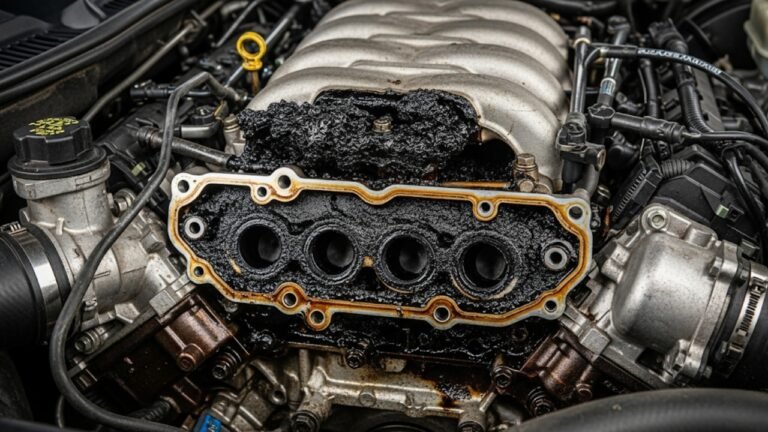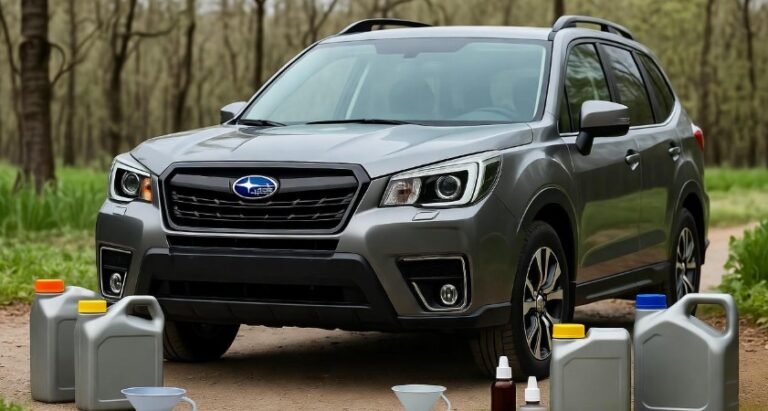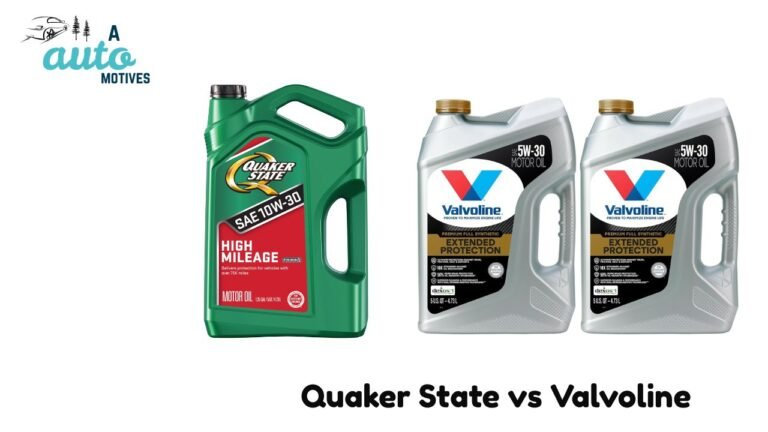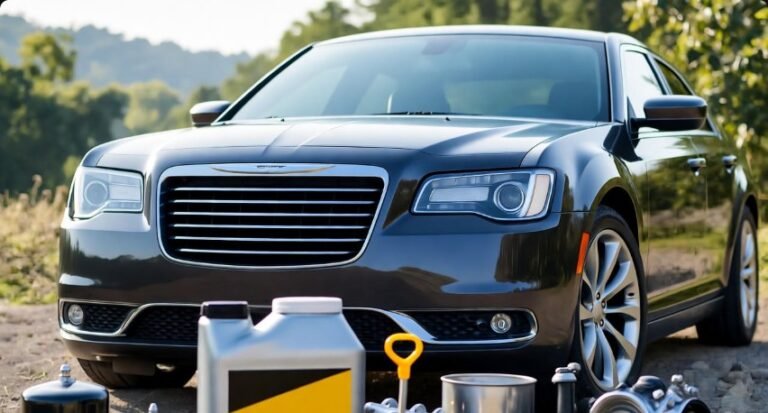Can a Car Not Start Because of No Oil?
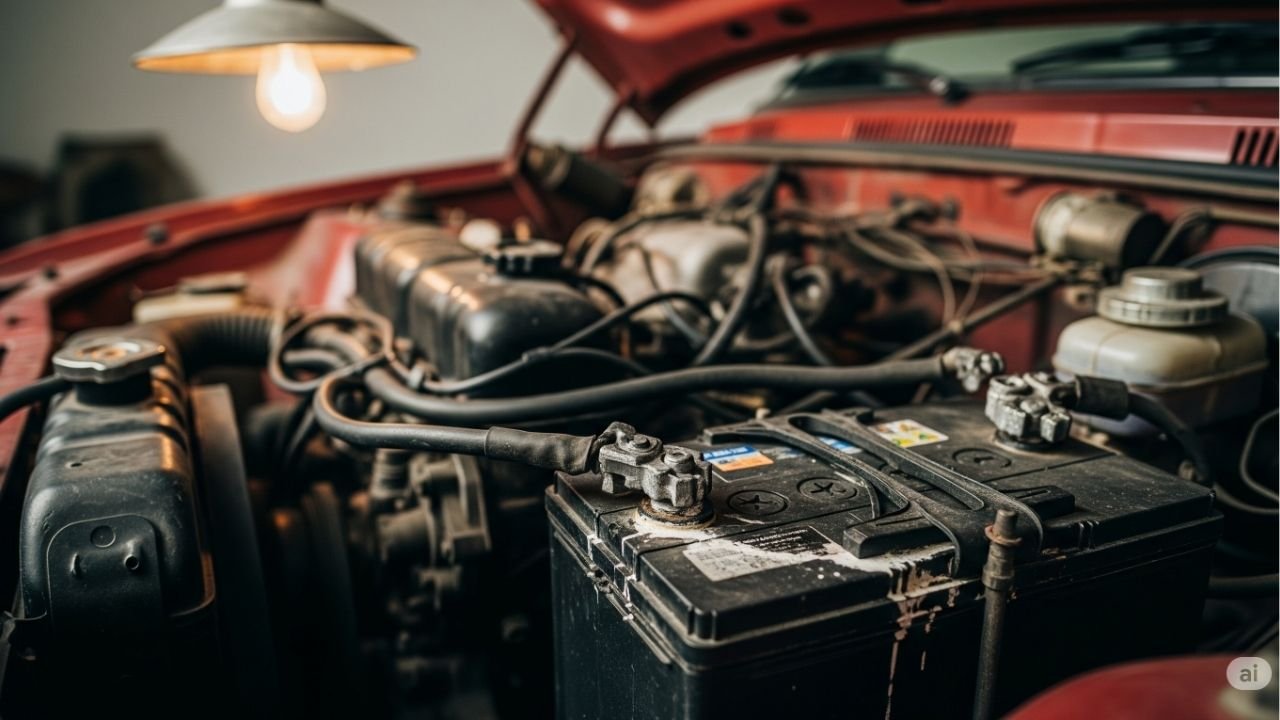
You get in your car. Key in. You turn the ignition. Silence. No click. No roar. Just dead quiet. Instantly, your mind starts racing. Dead battery? Starter motor? Fuel pump? But have you ever thought—can a car not start because of no oil?
That question sounds odd at first. Oil isn’t electric. It doesn’t spark or push pistons. But what if it matters more than you think?
I’ve been there. One hot summer day in Dhaka traffic, my cousin’s Toyota just refused to start after stalling at a signal. Everything seemed fine—battery, lights, fuel. But one thing was missing: engine oil. That day sparked my curiosity, and in this article, I’ll take you deep into why lack of oil could actually be the reason your car stays silent.
Let’s break it down—bit by bit, story by story, and fact by fact.
In This Article
- 1 What Happens When There’s No Oil in Your Engine?
- 2 How Oil Shortage Can Prevent Your Car From Starting
- 3 Why Some Cars Have Safety Sensors That Prevent Starting
- 4 Real-Life Story: A Missed Oil Change That Killed an Engine
- 5 Symptoms of Oil-Related Engine Damage
- 6 How to Check If Low Oil Is the Problem
- 7 Key Takeaways So Far
- 8 Repair vs. Replacement: What If the Engine Is Already Damaged?
- 9 How to Prevent Oil-Related Starting Problems
- 10 What About Electric Cars or Hybrids?
- 11 Emotional Side of a Breakdown: Let’s Be Honest
- 12 FAQs About Oil and Starting Issues
- 12.1 Q1: Will my car start if it’s low on oil but not empty?
- 12.2 Q2: What if my car starts and stalls quickly?
- 12.3 Q3: Can I fix a car that won’t start due to no oil?
- 12.4 Q4: How often should I check my engine oil?
- 12.5 Q5: What happens if I keep driving with low oil?
- 12.6 Q6: Is synthetic oil better at preventing engine failure?
- 12.7 Q7: Can a car restart after running dry of oil?
- 12.8 Q8: Can adding oil fix a car that won’t start?
- 13 Bonus Checklist: What to Do If Your Car Won’t Start
- 14 Final Thoughts: Respect the Oil or Pay the Price
What Happens When There’s No Oil in Your Engine?

Engine oil isn’t just for “lubrication.” It’s the life-blood of your car. It cools, cleans, cushions, and coats every metal surface. Without it, friction builds up like anger in rush-hour traffic.
When the engine runs dry, parts heat up. Fast. Pistons grind against cylinders. Valves don’t move smoothly. Bearings seize. In a matter of seconds, things inside your engine start warping, melting, and failing.
Here’s a quick table showing what happens with and without oil:
| With Engine Oil | Without Engine Oil |
|---|---|
| Smooth movement of parts | Metal-on-metal contact |
| Cools the engine | Rapid overheating |
| Cleans dirt and carbon | Sludge and damage |
| Prolongs engine life | Severe wear in minutes |
| Car runs normally | Engine can seize or not start at all |
So, can a car not start because of no oil? Yes. Especially if the engine was running dry and seized the last time it was used.
How Oil Shortage Can Prevent Your Car From Starting
Let’s get this straight: a car won’t immediately fail to start just because oil is low. It’s not like fuel. But if the engine was already damaged from running without oil, it might not crank at all the next time.
Let me explain like I’m telling a friend.
Picture this. You drove home with low oil, thinking, “It’s just a short trip.” The engine started knocking, but you ignored it. Next morning? Dead silence. That’s because running dry likely caused internal damage—bearings locked up, pistons welded, or even the crankshaft jammed.
You might hear a faint click. Or nothing at all. No oil means no lubrication. That means high friction. High friction leads to heat seizure. And once components seize up? Your engine becomes a statue.
Important signs your car won’t start due to oil damage:
-
Engine won’t crank or turn over
-
You hear grinding or clicking
-
Oil light was on previously
-
Engine was running rough before it died
-
You smell burnt oil or see smoke
If any of those sound familiar, your car might not be starting because the engine internally failed from oil starvation.
Why Some Cars Have Safety Sensors That Prevent Starting
Modern cars are like overprotective parents. They’re packed with sensors that try to prevent damage before it happens. That’s where oil pressure sensors come in.
Some newer models won’t let the engine crank if there’s zero oil pressure. Why? Because starting an engine with no oil is like running a marathon barefoot on glass.
These smart systems check for:
-
Oil level
-
Oil pressure
-
Oil temperature
If something seems off, the car won’t start. It’s a built-in safeguard.
So yes, in these cases, can a car not start because of no oil? Absolutely. Not because the engine is dead, but because the car is smart enough to protect it.
Pro Tip: If your oil warning light stays on, don’t try to start the car again. Check the dipstick first.
Real-Life Story: A Missed Oil Change That Killed an Engine
This happened to a neighbor. He had a used Honda Civic that hadn’t had an oil change in over 20,000 km. One day, it stalled on the highway and wouldn’t restart. Towed it to the shop. The mechanic found a seized engine. The oil had turned to thick sludge, and nothing moved inside anymore.
Moral of the story? Oil is cheap. Engines are not.
This is why skipping oil changes is like skipping meals for your car. You don’t see the problem immediately, but one day—it just collapses.
So yes, again, can a car not start because of no oil? For sure. Especially if neglect caused long-term internal damage.
Symptoms of Oil-Related Engine Damage
Before your car refuses to start, it often gives you warning signs. Learn to read them like early signs of a cold.
Here’s what to watch out for:
-
Engine knocking or ticking sounds
Sounds like metal tapping metal? That’s oil starvation. -
Burning smell under the hood
Old oil or friction burns fast. It smells like scorched toast. -
Overheating
No oil means no cooling effect. The engine runs hot—fast. -
Oil light on the dashboard
This is your car screaming: “Check me now!” -
Smoke from the exhaust or engine bay
White or blue smoke can mean internal oil problems.
Ignore these, and your car might not start the next morning.
How to Check If Low Oil Is the Problem
So you’re stuck. Car won’t start. You’re wondering—can a car not start because of no oil? Here’s a quick, no-tools-needed way to check:
-
Pop the hood.
-
Pull out the dipstick. Wipe it clean.
-
Dip it back in fully. Then pull it out again.
-
Check the oil level.
If the dipstick is bone dry or below the “Min” line, you’ve got a problem. You might have oil leakage or consumption issues. And that might be why your engine isn’t turning over.
Bonus Tip: Even if the oil is low, don’t just top it off and start the engine. If it already seized, more oil won’t help. Get it inspected first.
Key Takeaways So Far
Let’s quickly recap what we’ve covered in bullet form:
-
Can a car not start because of no oil? Yes, if damage has already occurred or if sensors block ignition.
-
Engine oil is vital for cooling, lubrication, and motion.
-
Some modern cars prevent starting with zero oil pressure.
-
A seized engine from oil starvation won’t crank at all.
-
Warning signs often appear before the car refuses to start.
Repair vs. Replacement: What If the Engine Is Already Damaged?
So, your car won’t start, and the mechanic confirms it—your engine is seized due to no oil. Now what?
First off, don’t panic. It sounds horrible—and it is bad—but there are options. The path you take depends on a few key factors:
Repair Options:
-
Engine Rebuild
A mechanic takes your engine apart and replaces the damaged parts (pistons, bearings, crankshaft, etc.). This can cost between $1,500 and $4,000 depending on your vehicle type. It’s a deep fix but worth it for newer or high-value cars. -
Used or Reconditioned Engine Swap
Instead of fixing yours, some shops offer used engines in decent condition. Swapping in one of these could cost less—around $1,000 to $2,500 including labor. -
Oil System Flush and Partial Repair
If the engine hasn’t completely seized, a mechanic might clean out sludge, change filters, and replace partially damaged parts. Not always possible—but sometimes a lucky break.
Replacement May Be Better If:
-
Your car is over 10 years old.
-
It’s worth less than the engine repair.
-
The engine damage is total (melted pistons, cracked block, etc.)
Here’s a comparison chart to make things clearer:
| Option | Cost Estimate | Best For |
|---|---|---|
| Full Engine Rebuild | $1,500–$4,000 | Newer or luxury vehicles |
| Used Engine Replacement | $1,000–$2,500 | Budget-conscious car owners |
| Partial Repair & Oil Flush | $500–$1,200 | Minimal damage or early detection |
| Engine Replacement (New) | $4,000–$7,000+ | High-end or special-performance cars |
So yes, the answer to “can a car not start because of no oil” can sadly end with expensive repairs. But acting early can limit the damage—and your bill.
How to Prevent Oil-Related Starting Problems
They say prevention is better than cure. And with cars? That couldn’t be truer. Here’s how to make sure you never have to ask again, can a car not start because of no oil?
1. Regular Oil Checks
Make it a weekend habit. Once every two weeks, pop the hood, check the dipstick. It takes two minutes, and it can save you thousands.
2. Follow the Oil Change Schedule
Check your owner’s manual. Most cars need oil changes every 5,000–10,000 km. Don’t stretch it. Old oil breaks down and stops working.
3. Use the Right Type of Oil
Don’t just pour in whatever’s cheapest. Use oil that meets your car’s manufacturer specifications—viscosity matters.
4. Watch the Oil Light Like a Hawk
If that red oil light blinks, don’t ignore it. It’s not like the “check engine” light—it means your engine might be dying right now.
5. Look for Oil Leaks Under the Car
See a puddle in the driveway? Check it. Engine oil leaks smell strong, and the fluid is usually brown to black.
6. Listen for Strange Noises
Ticking, knocking, clunking—these are cries for help. If the engine sounds dry or rough, check your oil before starting again.
What About Electric Cars or Hybrids?
You might be wondering, “do EVs or hybrids have the same oil issues?”
-
EVs (Electric Vehicles): No internal combustion engine, so no engine oil needed. Problem avoided altogether.
-
Hybrids: These still have internal combustion engines and do require oil. So yes, hybrids can suffer from oil-related non-starting issues.
So while EV drivers can breathe easy, hybrid owners need to stay just as alert.
Emotional Side of a Breakdown: Let’s Be Honest
Let’s pause the technical talk for a second.
When your car doesn’t start, it’s not just inconvenient—it’s emotional. Especially if you’re late for work, on a long trip, or worse—alone at night. There’s frustration, fear, sometimes even guilt. “Did I miss the signs? Should I have changed the oil last month?”
Trust me, you’re not alone. We all miss stuff. Cars are complicated, and life is busy. But now you know. You can help someone else avoid the same fate.
FAQs About Oil and Starting Issues
Q1: Will my car start if it’s low on oil but not empty?
Yes, it might start—but you’re risking damage. Low oil still reduces pressure and cooling. Top it up ASAP.
Q2: What if my car starts and stalls quickly?
That could mean temporary oil pressure exists, but not enough to keep things lubricated. Stop driving immediately.
Q3: Can I fix a car that won’t start due to no oil?
If the engine is seized, repair is expensive. Sometimes a full replacement is needed. Prevention is far cheaper.
Q4: How often should I check my engine oil?
Check every 2 weeks or before long trips. Older cars might need more frequent checks due to slow leaks or oil burn.
Q5: What happens if I keep driving with low oil?
It’ll start with ticking, lead to overheating, and end in a completely seized engine. It’s like running with a broken leg—possible, but not for long.
Q6: Is synthetic oil better at preventing engine failure?
Yes. Synthetic oil resists breakdown longer and handles heat better. It’s a great choice for modern engines or hot climates.
Q7: Can a car restart after running dry of oil?
Sometimes, but it’s risky. Even if it starts, it may have internal damage that worsens with each run.
Q8: Can adding oil fix a car that won’t start?
Not always. If the damage is done, adding oil won’t help. But if the engine is simply low—not seized—then yes, it might help it start again.
Bonus Checklist: What to Do If Your Car Won’t Start
Here’s a quick step-by-step guide if your car suddenly refuses to start and you suspect oil is the issue:
-
Check the dipstick. Is oil visible? What color is it?
-
Look under the car. Any puddles or oil spots?
-
Check the dashboard. Is the oil light on?
-
Listen for sounds. Clicking? Grinding? Silence?
-
Try starting once. Don’t keep cranking—it can make things worse.
-
Call a mechanic or tow service. Get a diagnosis before doing anything else.
-
Keep records. If your car is under warranty, these notes help.
Final Thoughts: Respect the Oil or Pay the Price
Let’s bring it all home.
Yes, a car might not start because of no oil. It’s not a common beginner’s guess—but it’s a real and costly cause. Whether the engine has completely seized, or the vehicle’s sensors are protecting it, the result is the same: no start, no go.
Oil isn’t just a fluid. It’s the invisible hero inside every car. And it doesn’t ask for much—just a few minutes of attention every few weeks. In return? It’ll keep your engine alive and your rides worry-free.
So next time your car goes quiet, don’t overlook the obvious. Ask yourself: “Could it be the oil?”
And remember—treat your car’s engine like your own heart. Keep it clean, cool, and cared for.

